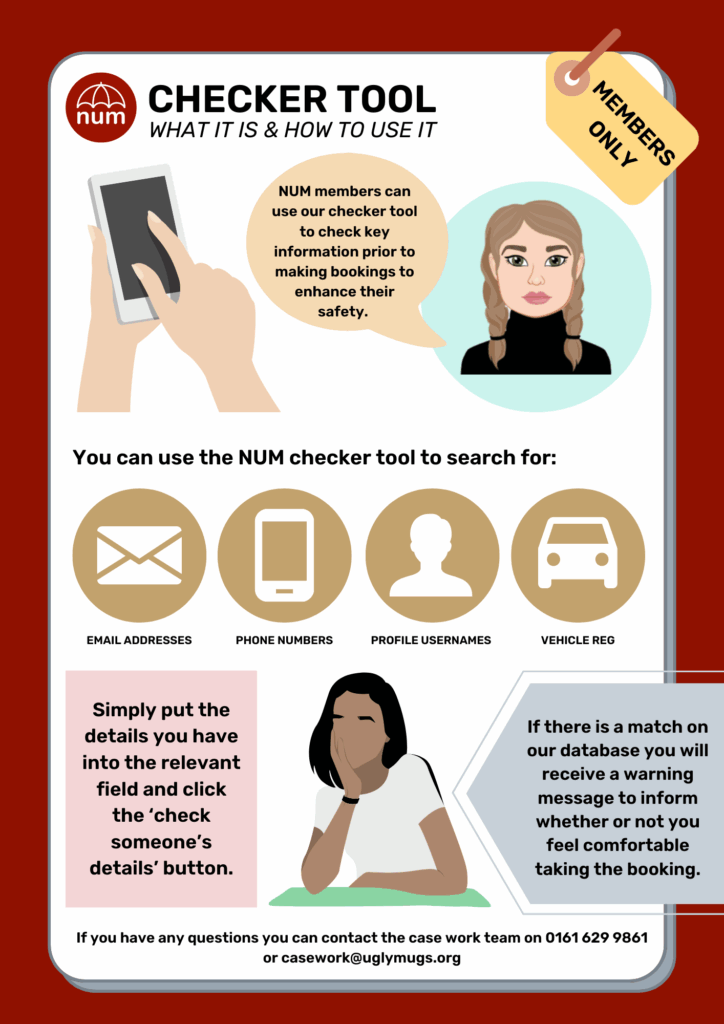Her face blurred in lingerie-clad photos, Annie’s images are splashed across an exclusive website, advertising herself as a high-class escort. It might not be for everyone, but this well-educated museum worker is fiercely protective of her side-hustle which she feels is ‘romantic and glamorous’.
“I am damn proud of what I do,” says Annie, 24. “I’m really bloody good at it, and I enjoy it. Not many people can say that for their jobs.”
Annie, not her real name, became a high-class escort at the beginning of 2025 to fund her dream of going to drama school and becoming an actress. “It feels like an acting gig,” she says. “I am playing the role of my alter ego, who is quite different from me.”
While agency-based escorting only represents around 4% of the UK sex industry, it’s often the kind of work which fuels the glamorous image of sex work seen in media- expensive dinners, luxury hotels, and generous paydays.
Clients select her profile and arrange meetings through her female agent, who also used to be a sex worker, and takes a deposit. According to UK law, this practice which is classed as ‘pimping’ is illegal. However, the agency gets around the law by claiming they sell the workers’ time rather than explicitly advertising sex.
Although, Annie explained that sex is not optional on these dates. “They [the clients] have already paid the deposit. They give me the cash up front. I don’t know if they would demand money back if I didn’t have sex or if they would get angry.”
She works predominantly for financial necessity and in the last three months has saved over £5000 from the earnings she has made. “It is the first time in my life I’ve ever had savings,” Annie says.
She grew up the youngest of six children to a single mother who had “no money”. It was only with the financial assistance of a full bursary and working part time in hospitality Annie was able to complete her English Literature degree at university.
For the three years she was “living paycheck to paycheck,” but now works in a museum while she is training to be an actress. But Annie explains this will not fund the £20,000 she needs to go to drama school.
“I can make more in three hours as an escort than I would make in a month at my day job,” she says. “For most of the girls at the agency, it’s their side hustle. They’re all different ages and all of them have professional careers.”
Annie currently works two to three times a month. The agency Annie is registered with offers a “girlfriend experience” to high-end clientele, typically to men in their 50s and 60s, many of whom are married with children.
For each job, Annie earns around £1,000 in cash for a three-to-four-hour date, which typically includes dinner, a theatre show, or a hotel visit. “They’ll take you to a gorgeous restaurant,” says Annie. “You’ll have champagne, cocktails, and three courses. The bills will be hundreds of pounds. They’ll be very gentlemanly. They’ll treat you like you’re a goddess and a princess and the most gorgeous thing in the room.
“Most of the time, they just want someone to chat to, and they want to be seen at a restaurant with a younger girl, they want someone who is going to laugh at all their jokes.”
She describes all of her sex with clients so far as “vanilla”, not lasting more than 15-30 minutes. “You can always just close your eyes and think of your work crush,” she says.
The aspiring actress is a “homoerotic bisexual”, meaning she is more attracted to other women and says she would only date a woman, making it easier to separate her sexuality from her work. “I have not been attracted to a single one of these men,” she says. “I think it’s a job most people wouldn’t want to do, but I genuinely think it’s a job most people wouldn’t be able to do.”
Annie is keenly aware of the stigma surrounding her profession but is adamant that people shouldn’t be judged for their individual choices. “I’m not ashamed of what I do, but I don’t want to publicise it,” she says. “I know that there is a massive societal prejudice.” Annie has only told a close circle of friends about her job and feels fortunate that her female friends are very supportive but two of her male friends were very judgmental and “preachy”.
“We’ve still not really gotten over this Victorianized mechanical view of women who need to be saved,” Annie says.
To ensure her safety, the agency Annie works with verifies client identities, and she calls her agent when arriving and leaving the meeting location. In the UK, women involved in sex work are 18 times more likely to be murdered than the rest of the female population.
“It’s not that different from going to a hook up,” Annie says. “You’re still meeting someone that you don’t know but it does feel safer than that, because I know that he has been vetted, that he’s been checked, I know his identity. If anything happens to me, they will be in immediate trouble, and my agent will go straight to the police.”
Annie also uses platforms such as Ugly Mugs, a website that allows sex workers to report bad experiences and identify the men, so that other sex workers can cross-check their potential clients.

The only negative sexual encounters Annie has experienced have been with men her own age, whom she has slept with outside of work. “They are the ones who will start choking you or slapping you around, calling you really vile names,” she says.
Annie believes this behaviour has become a norm in some younger men and stems from the access to graphic porn sites. “Mainstream porn on PornHub is quite violent and unpleasant. It feels misogynistic. It doesn’t feel like romantic sex. It feels so brutal and animalistic.”
Annie’s believes her style of sex work allows her to feel safe. She is adamant she wouldn’t do street sex work, where workers solicit customers in a public place. “I think it’s unsafe, and you’re much more at risk from abducted, raped or murdered,” she says.
But Annie is keen to point out that she is in a different financial position to street sex workers. “A lot of the people who do that kind of sex work are a lot more desperate and fuelled by sort of more basic needs than to fund a degree,” she says. “I’m not doing this because I need to do this to survive. I’m doing this because I want to pursue the things that I enjoy. I think that’s a very big difference.”
Annie operates in a legal “grey area”, technically selling her companionship rather than her body, and advocates for decriminalization of sex work and regulation of the industry. “We are not the criminals,” she says. “We’re just people. I think if you’re doing it in a way that isn’t hurting anyone, like ethical, fair trade sex work, then I genuinely do not see the problem with it.
“If something does go wrong and someone is hurt badly, decriminalization means they can go to the police and can be investigated, without them worrying about being treated as a criminal themselves.”
Annie and her fellow agency workers do not support the Nordic model of sex work legislation, an approach which has been adopted in several European countries, including Sweden, France and Northern Ireland, where those who are purchasing sex are criminalised, and those people selling sex are decriminalised.
“It comes with the narrative that all sex work is inherently harmful and violent and insidious,” Annie says. “There’s still quite a stigmatized view of sex work but it needs to be treated like it is a valid choice and a valid job.”




